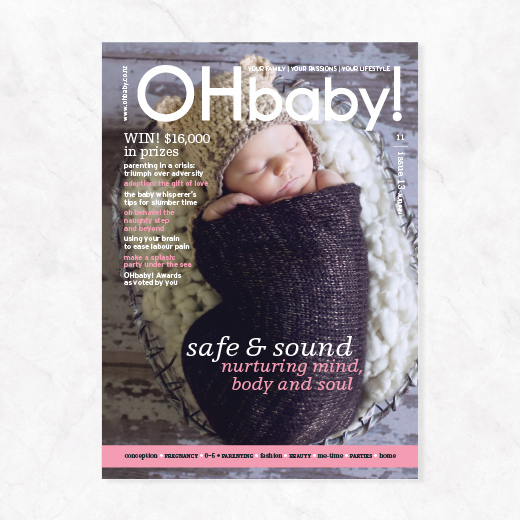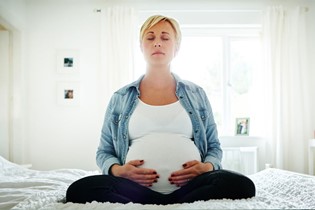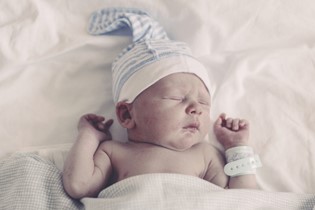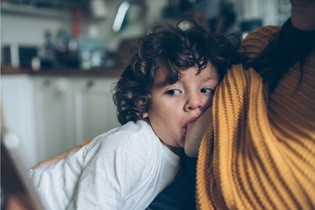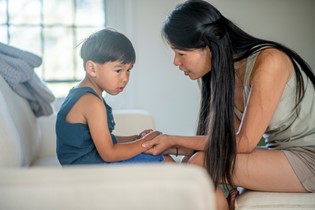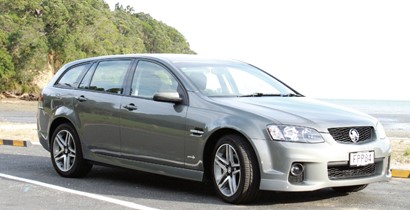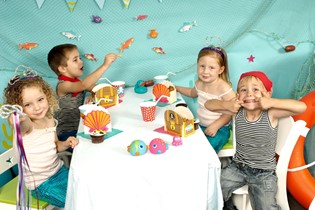A parent's guide to choosing the best care provider
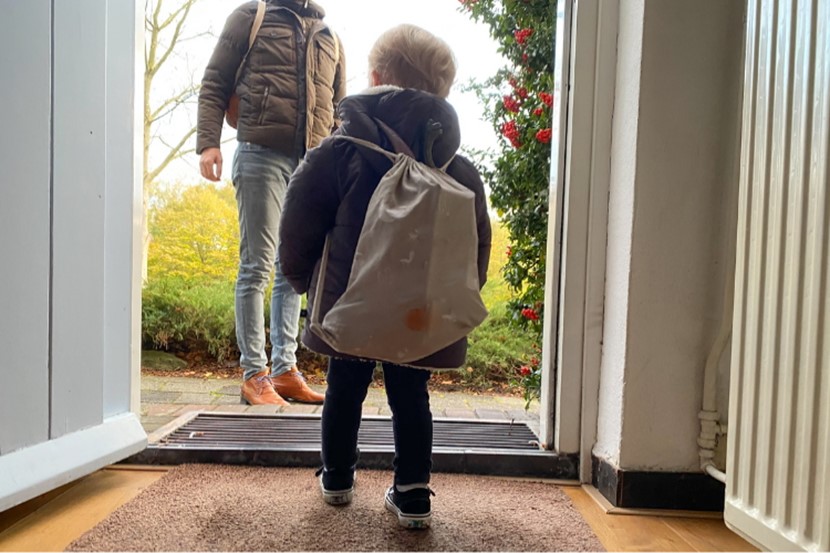
Is your child starting childcare? Whether they're going into a daycare centre, attending home-based care or being looked after by a nanny or au pair, here's what you need to think about.
Deciding to enrol your child in childcare is a huge step for new parents. Your little one is entirely dependent on you for everything, and to entrust those responsibilities to another person takes a leap of faith on your part. Here are some important questions to ask potential providers before making your decision.
What is your childcare philosophy?
Reggio Emilia, Montessori, Rudolf Steiner… Childcare philosophies can sound like Greek to many parents, especially when you're not familiar with the lingo. Ask what theories your centre or caregiver subscribes to with regard to play and learning. The best centres are ones where play is paramount, because in the early years before your child begins school, learning occurs best through play, not through flash cards or "educational" DVDs. Do the children watch TV or videos at all (such as on rainy days) and are you okay with that? Do they have different play "zones" for different ages and stages, or are children encouraged to play together regardless of their age? Is the focus on nurturing and providing a secure environment or is there an academic component you should be aware of? Is learning self-directed and based on what the children express an interest in, or does it follow a standard curriculum with themed activities throughout the year? And if you're hiring a home-based carer, who may or may not be trained in early childhood education, what activities will she or he do with your child? If you're hiring a nanny or au pair, especially one who is unfamiliar with the area, you may need to direct her to local playgroups, story times, and suitable out-of-the-home activities.
How many of your staff are qualified, and what is your turnover?
Recent changes in legislation around early childhood education have reduced the level of early childhood teacher qualifications required of childcare centres, meaning that centres with low levels of qualifed staff have lost the funding incentives to encourage staff to become qualified, and centres with high levels of qualified staff have needed to charge more to adequately pay their qualified teachers - or may have let some qualified staff go due to removal of their funding. This is very concerning, and many excellent centres have been affected by this policy change. Find out how many qualified staff the centre employs, and what the turnover rate is. Turnover can tell you a lot about a centre - high turnover can indicate employment issues and you don't want unhappy staff looking after your child.
What is your child-to-adult ratio?
Find out how many children are enrolled in the centre, how many will be there at any one time, and how many adults or teachers will be present to look after the children. Depending on when your child's centre was licensed, there are different ratios that need to be adhered to. Find out what the child-to-adult ratio is at your child's centre and check that against the government regulations. A general rule of thumb is the fewer children an adult has to look after, the better.
What are your security policies?
This comprises two parts: How well the centre, home-based provider, nanny agency or au pair agency screens its staff, and how much security your child will receive when she is in care. All childcarers should have up-to-date and clean police certificates, and, in the case of home-based caregivers, this also includes all adults over the age of 18 who are regularly in the home. You will also want to know how easy it would be for your child to escape or harm themselves, and how easy it would be for someone else to take your child. These are not nice things to think about but they are necessary.
Does the centre or home have a childproof gate and child-safe locks on the windows and doors? Are drawers and cupboard doors secured? Are sharp or dangerous objects such as scissors, knives and cleaning products out of reach in locked cupboards? Equally, are there procedures in place to ensure that a non-approved adult cannot take your child out of the centre or caregiver's home, either accidentally or on purpose? You should be asked to name approved adults and emergency contacts who are allowed to pick up your child, and all staff should be made aware of who these people are and their relationship to your child. Sign-in and sign-out sheets are important too. Ask if the centre or caregiver does regular "head counts" to make sure that all children are present and that they are aware of where they are and what they are doing at all times.
How do you handle emergencies?
For a daycare centre, you want to know what procedures are in place in case of an emergency such as a fire, or a situation such as your child hurting herself. Your contact details and emergency contacts should be kept private, but should also be easily accessible. Fire extinguishers and alarms should be up-to-date and checked regularly. You will want to know how a home-based carer, nanny or au-pair will handle an emergency. It is important that the caregiver looking after your child has CPR and first-aid training, as well as the ability to keep a cool head if something goes wrong.
What is your policy on discipline?
This is a question many parents don't even think about, because we never imagine our child as the naughty one. But it's important that your child's caregiver has a similar philosophy about discipline to your own. You should understand what disciplinary measures are prohibited (and likewise, what disciplinary measures you yourself will not stand for). Babies should never, ever be disciplined. Ask for the centre or caregiver's discipline policies in writing and if you have any questions or concerns, make sure to raise them.
What is your policy regarding sick children?
We all know that kids who go to daycare seem to catch every bug known to man. What the centre or caregiver does about this will be important for two reasons. First, it impacts on your sick days, because you may need to take time off work to care for your ill child. Second, you will likely still have to pay for childcare on any days your child misses, especially at daycare centres. Some centres allow children who have seen the GP and received a prescription for antibiotics to attend. Some say that a cold is fine, but a fever is not. You may find that home-based caregivers, nannies or au pairs are more receptive to caring for a sick child, especially those working from your home. But be aware that if your child's carer catches the illness, they might need to take sick days too.
What's the deal with food?
With the rise in allergies among children, your child's daycare centre or caregiver may ban certain foods from entering the premises, such as peanut butter or eggs. Some places have a "no-waste" policy and won't accept foods that are packaged in non-recyclable packaging such as plastic wrap, so you may need to invest in washable snack containers or sandwich wraps. Some centres may provide morning and afternoon tea but expect you to send your child's lunch along with them. In-home caregivers might be willing to provide your child's meals for an extra fee on top of their hourly rate. And nannies or au pairs may be willing to cook a "proper meal" for your little one, as well as clean up the mess. Make sure you understand all of the rules around food and adhere to them.
Likewise, if your child has an allergy or intolerance, find out what steps the centre or caregiver will take to ensure her safety.
What happens if I am late to pick up my child?
Even with the best of intentions, heavy traffic or unexpected events can make you late picking up your child. Centres may require you to call ahead if you are going to be late and may charge you for the time. Some centres will permit one "freebie" but then charge quite a bit - even $1 per minute - for subsequent late pick-ups. Home-based caregivers, nannies and au pairs will have their own policies and should make this clear in their employment agreement, but please keep in mind that no matter what, the later you pick up your child, the later the carer will be in getting home to her own family.
What kind of interaction should I expect?
Parents should be encouraged to visit your child's centre or home-based caregiver's home at any time, without needing to call ahead. Likewise, if your child is being cared for in your home by a nanny or au pair, tell her that they can expect you to check in often. It can be disruptive to your child's day to find you suddenly appearing to "just say hi", so a quick visit to observe your child without him or her seeing you might be preferable for everyone concerned.
Additionally, find out if the centre or caregiver has opportunities for parents to get involved, such as discos, picnics or other special events. Is there a regular newsletter to keep you updated? Does your child have an individualised journal where notes are made of their daily activities and progress?
It's important to keep the lines of communication as open as possible, and your child's caregiver should be committed to keeping you abreast of what's going on.
These are only some of the questions you should ask your child's potential caregiver, but they are arguably the most important. Take the time to visit the centre or caregiver's home, and don't be afraid to trial different types of care until you find one that best suits your needs. Ask friends for recommendations. Check out www.ero.govt.nz to find out more about what the government's Education Review Office has said about your local daycare centre (centres are reviewed about once every three years). Most importantly, trust your own judgment.

AS FEATURED IN ISSUE 13 OF OHbaby! MAGAZINE. CHECK OUT OTHER ARTICLES IN THIS ISSUE BELOW
